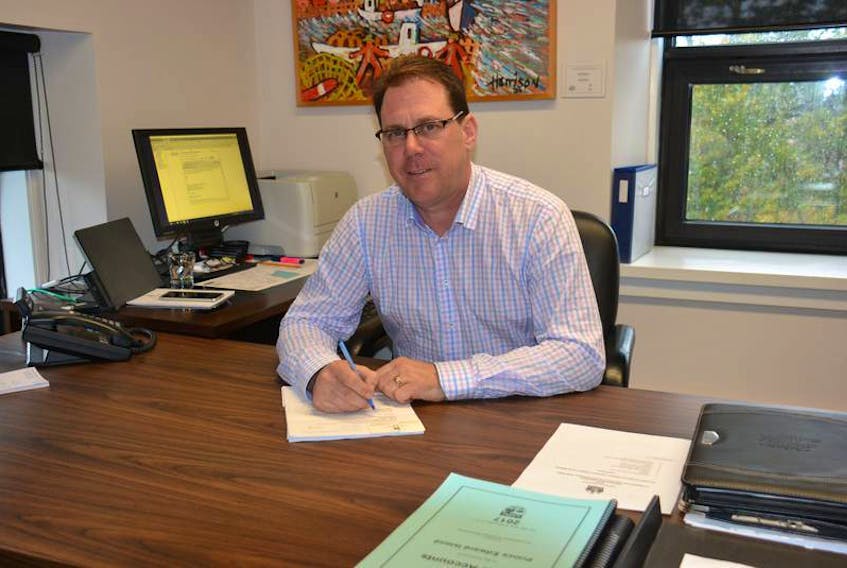BY ALAN HOLMAN
GUARDIAN COLUMNIST
When James Aylward, leader of the Island’s Conservative Party, recently advocated ‘rocking the cradle’ by removing partisanship from the legislature, he says he did so after talking it over with his fellow MLAs.
Mr. Aylward is calling for a consensus government similar to that used in two of the three northern territories. The Yukon has political parties. In the NWT and Nunavut, members are elected to the legislature, and then the elected members choose from among themselves who will be premier and members of the cabinet.
Judging by the reaction he got, Mr. Aylward did rock the cradle. He stirred up lots of comment, but he doesn’t seem to have any backing from any of the Conservative Party hierarchy, or from any of the Tory MLAs.
Only Bush Dumville, who now sits as an independent MLA after being elected three times a Liberal, has offered any support. Mr. Dumville removed himself from the Liberal caucus when he failed to get a minister’s car and salary.
While no one has come out fully against what Mr. Aylward has proposed, many think it is unworkable given the province’s long history of partisan politics.
dealistically there is something appealing about a legislature free from political bickering; where everyone behaves as grown-ups, and everyone sets aside their own self-interest, and the narrow interests of their constituency, to work for the betterment of the whole province.
At first glance consensus government has some appeal, but this wanes a bit with the realization that with a consensus government only the 27 elected members would determine who’ll be premier and who sits in cabinet. No one else would have any in-put in those decisions.
At least with party politics, party members get to choose their leader, and the public gets to say which party forms the government and thus who becomes premier.
Until recently, the core support for both the Liberals and Conservatives hovered in the 25 percent range, maybe a bit more for the Liberals. Elections were determined on how much extra support the party could attract from those with no strong connection to any political party. Studies have shown that among the non-aligned voters, the popularity of the party leader is the biggest determining factor in how they cast their ballots; not policy issues, and usually not the local candidate.
However, UPEI political scientist, Don Desserud, thinks in today’s political climate, Mr. Aylward has identified over partisanship, or hyper partisanship, as an issue of concern to many Islanders. But, Mr. Desserud is among those who believe partisan politics is too ingrained in Island culture to be easily abandoned.
For those who support proportional representation, the answer to the problem lies not in abandoning partisan politics, but in adopting a system that ensures more partisan voices get heard in the legislature.
The government has already said Mixed Member Proportional Representation (MMP) will be on the ballot in the referendum to be held in conjunction with the next provincial election, plus another option from government. But the second option hasn’t been officially decided.
The electoral commission was asked to draw up a map outlining 18 electoral districts. This seems to indicate the government is proposing 18 seats of the legislature will be determined by the present First-Past-the-Post system. The remaining nine seats will presumably be chosen from lists submitted by the political parties. The allocation of the nine seats will be determined by the total popular vote each party gets in the district balloting. If the Tories get 40 per cent of the ballots, they get 40 percent of the seats, selected from the names the Tories put on their list.
But, who gets on the party lists, and who gets to determine who is chosen from those lists, are unknowns that need to be clarified before any referendum is held. Hopefully the next session of the legislature will last long enough to hold a full and frank debate on PR.
- Alan Holman is a freelance journalist living in Charlottetown. He can be reached at: [email protected]









